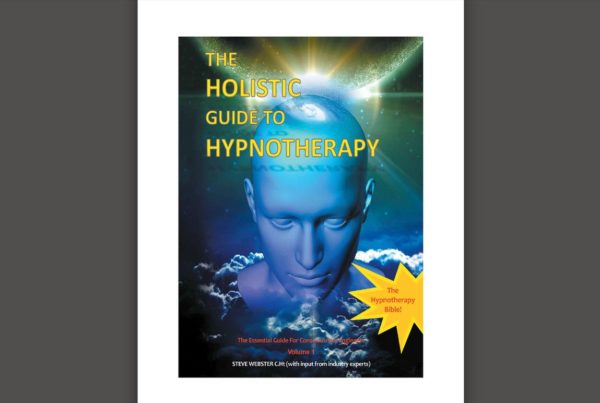Unlocking the Power of the NLP Meta Model: A Guide to Better Communication and Decision-Making
What is the NLP Meta Model?
In a world where communication plays a pivotal role in our personal and professional lives, being able to express ourselves clearly and understand others is more important than ever. However, have you ever noticed how misunderstandings still occur, even when we think we’re being clear? This is where the NLP Meta Model comes in—a powerful tool for improving communication by identifying and correcting hidden patterns in language.
The NLP Meta Model, short for Neuro-Linguistic Programming Meta Model, helps us delve into the deeper structure of language. By learning how to recognize and address distortions, generalizations, and deletions in what people say, we can gain incredible clarity, improve relationships, and make more informed decisions. This blog will introduce you to the basics of the NLP Meta Model and show you how it can be transformative in your everyday life.
Distortions: Unpacking Reality
Distortions occur when someone represents a situation in a way that twists reality. They may make assumptions, leap to conclusions, or interpret an event based on personal biases or emotions. A classic example of distortion is mind-reading, where a person claims to know what another is thinking or feeling without any direct evidence.
For instance, imagine a colleague saying, “I know she doesn’t like me.” This is a distortion of reality because it’s based on an assumption, not a fact. Using the NLP Meta Model, you could ask, “How do you know she doesn’t like you?” This question challenges the mind-reading distortion, encouraging the speaker to provide evidence or reconsider their assumption.
By recognizing distortions, you can avoid reacting to false assumptions, helping you engage more effectively and find solutions based on a clearer understanding of the situation.
Generalizations: Challenging Broad Statements
Generalizations happen when someone makes a sweeping statement that applies to all situations or people, even when it’s based on limited experiences. While generalizations help us make sense of the world quickly, they can lead to inaccurate or limiting beliefs.
Consider someone saying, “No one ever listens to me.” This is a generalization that turns one or two experiences into an absolute statement. Using the Meta Model, you can ask, “No one? Can you think of a time when someone did listen to you?” By prompting the person to reflect on specific instances, you challenge the generalization, bringing the conversation closer to the truth.
In daily life, breaking generalizations can help you and others think more flexibly and avoid self-defeating beliefs, which can significantly improve communication and problem-solving.
Deletions: Filling in the Gaps
Deletions occur when important information is left out of a statement, making it difficult to fully understand the message. In many conversations, people assume shared knowledge or leave out details they believe are obvious, leading to confusion or incomplete communication.
An example of deletion is when someone says, “I’m upset.” While this statement conveys emotion, it lacks important details—what exactly is the person upset about? To clarify the deletion, you could ask, “What specifically are you upset about?” This invites the person to elaborate, filling in the missing information so you can better understand their perspective.
Addressing deletions not only helps you gather the full picture but also deepens your conversations, making them more meaningful and effective.
How the NLP Meta Model Improves Communication
By learning to recognize and challenge distortions, generalizations, and deletions, you can radically improve your communication skills. Here’s how:
- Gain Clarity: The Meta Model helps you clarify vague or ambiguous statements, leading to a deeper understanding of what someone is truly trying to express. In turn, this enables you to respond more appropriately and constructively.
- Enhance Relationships: By addressing the underlying meanings in what people say, you avoid misunderstandings, build trust, and communicate more effectively with loved ones, friends, and colleagues.
- Make Better Decisions: Clear communication allows you to gather more accurate information, which is essential for making well-informed decisions in both your personal and professional life.
Everyday Examples of the NLP Meta Model in Action
The NLP Meta Model can be applied in countless everyday situations, from conversations with family to professional meetings. Here are some practical examples:
- At work: If a team member says, “This project is impossible,” challenge the generalization by asking, “What part of the project is impossible?” This prompts them to identify specific challenges, making it easier to find solutions.
- In relationships: If your partner says, “You never help around the house,” use the Meta Model to challenge the generalization. Ask, “Never? Can you think of a time when I did help?” This not only brings clarity but also helps prevent arguments based on inaccurate assumptions.
- Personal growth: If you find yourself thinking, “I’m not good enough,” use the Meta Model on yourself! Ask, “Good enough for what?” or “What’s stopping me from being good enough?” These questions can lead to greater self-awareness and personal development.
The Benefits of Learning the NLP Meta Model
Mastering the Meta Model brings numerous advantages to your life. By improving your communication skills, you will:
- Build stronger relationships: Clearer conversations help you connect on a deeper level with those around you, fostering trust and mutual understanding.
- Enhance your career: Whether you’re in leadership, sales, or customer service, the ability to communicate effectively is a key to success. Using the Meta Model can make you a more persuasive and empathetic communicator.
- Boost your decision-making: By cutting through vague language and understanding the full picture, you’re more likely to make decisions that are based on reality rather than assumptions.
- Improve self-awareness: Applying the Meta Model to your own thoughts can help you uncover limiting beliefs and distortions that might be holding you back, empowering you to grow and make positive changes.
Sign Up for a Free E-Course on the NLP Meta Model
Ready to take your communication skills to the next level? Our Free E-Course on the NLP Meta Model is the perfect way to dive deeper into these techniques. You’ll learn how to master the art of questioning, break through distortions, and gain clarity in every conversation.
Sign Up for the FREE NLP Meta Model e-course here!
Release Hypnosis Melbourne Hypnotherapy
Since 2015, Lawrence Akers has been working under the name Release Hypnosis offering Hypnotherapy and ACT based work to the people of Melbourne or an online service. Based on St Kilda Rd, Release Hypnosis is an easy and convenient location to get to and accessible by the ANZAC station train and tram stop. Release Hypnosis can help with a wide range of presenting issues, and I offer a free 30 minute no obligation discovery call for those who are unsure if hypnotherapy is the right way forward for them.
Book Your FREE 30 Minute Consultation With Release Hypnosis NOW!
You may also like to read:
Exploring Content-Free Hypnotherapy
The Journey to Becoming a Better Hypnotic Subject
Best Hypnotherapy Resources 2023: Release Hypnosis Top Blogs
What Is The Success Rate of Hypnosis?
Release Hypnosis Melbourne Hypnotherapy is accessible for people in: Abbotsford, Armadale, Albert Park, Balwyn, Bentleigh, Black Rock, Box Hill, Brighton, Brunswick, Bulleen, Bundoora, Camberwell, Canterbury, Carnegie, Caulfield, Chadstone, Cheltenham, Clayton, Coburg, Collingwood, Deer Park, Doncaster, Elsternwick, Eltham, Elwood, Epping, Essendon, Fairfield, Fitzroy, Footscray, Glen Iris, Glen Waverley, Glenhuntly, Greensborough, Hampton, Hawthorn, Heidelberg, Highet, Ivanhoe, Kew, Kooyong, Lalor, Laverton, Lower, Plenty, Macleod, Malvern, Middle Park, Moonee Ponds, Melbourne, Moorabbin, Mount Waverley, Murrumbeena, Northcote, Oakleigh, Ormond, Parkville, Pascoe Vale, Port Melbourne, Prahran, Preston, Richmond, Rosana, Sandringham, South Yarra, South Melbourne, Spotswood, St Albans, St Kilda, Surrey Hills, Templestowe, Thornbury, Toorak, Tullamarine, Williamstown, Yarraville, North Melbourne, Windsor, East Melbourne, Melbourne, Melbourne CBD, Melbourne 3004








